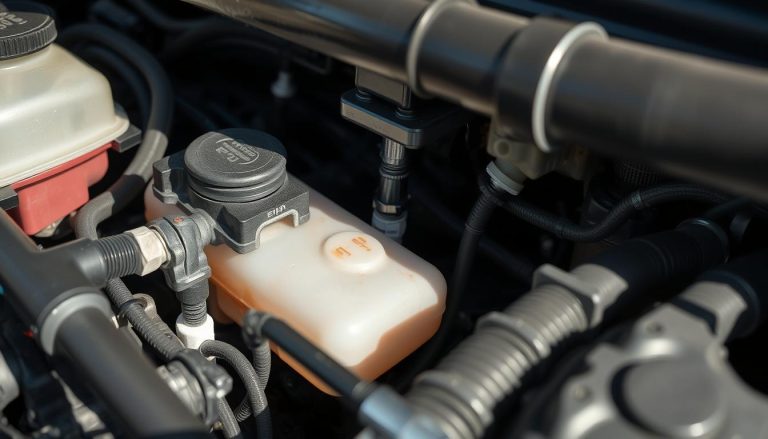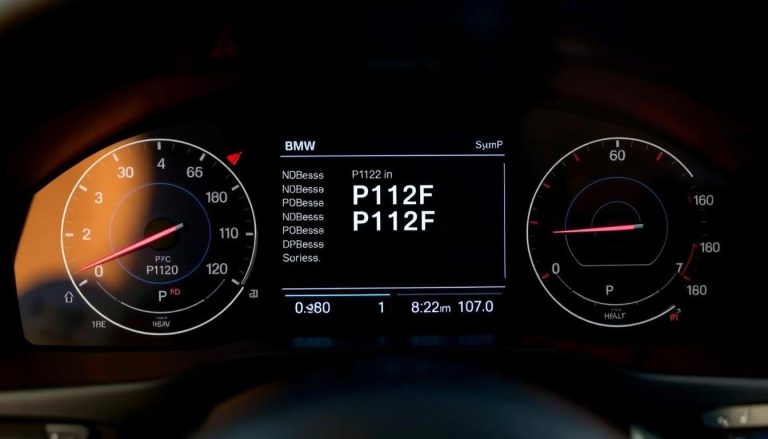If you’ve stumbled upon the P0255 code while peering under the hood of your vehicle, you might be feeling a mix of confusion and concern. This trouble code indicates an issue with the injection pump fuel metering control, specifically pointing to intermittent problems with components like the cam, rotor, or injector.
Understanding what this code means is crucial for maintaining your vehicle’s health and ensuring smooth operation on the road. Let’s dive deeper into what causes this code, its symptoms, how it’s diagnosed, and what steps can be taken to fix it!
What does the P0255 code mean?
The P0255 code is a diagnostic trouble code (DTC) that indicates an issue with the injection pump fuel metering control. Specifically, it points to intermittent problems involving the cam, rotor, or injector within the fuel system.
When this code triggers, it suggests that your vehicle’s engine control module (ECM) detects irregularities in how fuel is delivered to the engine. This can affect performance and efficiency.
Fuel metering plays a vital role in ensuring your engine operates smoothly. If there are issues with these components, you may experience rough idling or stalling.
Understanding this code helps pinpoint where potential malfunctions lie within your vehicle’s fueling system. Addressing it promptly can prevent further damage and more expensive repairs down the line.
What parts can be affected by P0255 code ?
The P0255 code primarily signals issues with the fuel metering system. This can affect several critical components in your vehicle.
First, the injection pump plays a crucial role. If it’s not functioning correctly, fuel delivery becomes inconsistent.
Next up are the camshaft and rotor within the pump. When these parts fail or malfunction, they disrupt proper timing and fuel flow, leading to performance problems.
Injectors also face potential impacts from a P0255 code. Clogged or damaged injectors can lead to poor combustion and reduced engine efficiency.
Other related sensors might be affected too, including pressure sensors that monitor fuel levels and flow rates.
Each of these parts works together seamlessly for optimal engine performance, meaning any disruption can have cascading effects on your vehicle’s operation.
What parts can be affected by P0255 code ?
The P0255 code primarily impacts the injection pump, specifically its fuel metering control system. This is critical for regulating the amount of fuel injected into the engine.
Additionally, you may see issues with camshaft or rotor components within the pump itself. These parts work together to ensure proper timing and delivery of fuel.
Injectors can also be affected by this code. If they fail to operate as intended, it disrupts the entire combustion process.
Moreover, related sensors such as the Fuel Pressure Sensor might show irregular readings due to a malfunctioning injection system.
Wiring and connections could become compromised over time, leading to intermittent signals that trigger this trouble code. Such failures can cascade through your vehicle’s performance systems if not addressed promptly.
What are the common symptoms of a P0255 code?
When your vehicle throws a P0255 code, it often comes with noticeable symptoms. You might experience poor engine performance that leads to sluggish acceleration. This can be frustrating during everyday driving.
A rough idle is another common sign associated with this code. The engine may shake or vibrate more than usual when stationary, indicating fuel delivery issues.
You might also notice an increase in exhaust smoke or unusual odors coming from the tailpipe. These signs point toward improper combustion within the engine.
Additionally, check for warning lights on your dashboard. The Check Engine Light will likely illuminate, prompting you to investigate further.
Fuel economy could take a hit too; you may find yourself making more frequent trips to the gas station as efficiency wanes.
What are the diagnostic steps for a P0255 code?
Diagnosing a P0255 code requires a systematic approach. Start by connecting an OBD-II scanner to retrieve the trouble codes stored in the vehicle’s computer.
Next, check for any additional codes that may provide further insight into the issue. This can help pinpoint whether multiple systems are involved.
Inspect wiring and connectors associated with the fuel injection system. Look for signs of damage or corrosion, as these can lead to intermittent faults.
Testing the fuel metering control components is crucial. Use a multimeter to measure resistance and voltage at various points within the system.
Consult manufacturer specifications for your specific vehicle model. This ensures that any tests performed align with industry standards and recommended practices. Each step plays a vital role in accurately diagnosing and addressing the root cause of the P0255 code.
How serious Is the P0255 Code? Can I continue driving with the P0255 code?
The P0255 code indicates a problem with the injection pump fuel metering control. This can affect your vehicle’s performance significantly.
Driving with this code could lead to engine misfires, reduced power, and increased emissions. If left unchecked, it may cause more severe damage to the fuel system and related components.
While some people might experience only minor symptoms initially, others could find their vehicle stalling or struggling on the road. It’s essential not to ignore these signs.
Continuing to drive in this condition is risky. A thorough inspection is advisable to prevent further complications and costly repairs down the line. Prioritizing repairs will ensure your car runs smoothly and efficiently again.
What are the repair solutions for a P0255 – Injection Pump Fuel Metering Control A Intermittent (Cam/Rotor/Injector) ?
Repairing the P0255 code often starts with a thorough inspection of the fuel system. This includes checking for any air leaks or blockages in fuel lines. Ensuring that your fuel filter is clean and not clogged can also eliminate potential issues.
Next, it’s essential to assess the injection pump itself. Sometimes, replacing faulty components like the cam, rotor, or injectors may be necessary if they show signs of wear or damage.
In addition to component repairs, software updates for the vehicle’s engine control unit (ECU) might be required. A reprogramming could resolve communication issues between sensors and pumps.
Regular maintenance plays a crucial role in preventing future occurrences of this code. Keeping up with service schedules ensures all systems remain in optimal condition and minimizes unexpected failures down the line.
What other codes may be related to P0255?
When dealing with the P0255 code, it’s crucial to keep an eye on other related diagnostic trouble codes (DTCs) that may pop up. Codes like P0200 through P0299 often indicate issues within the fuel system or injector circuits.
Specifically, you might encounter codes such as P0201 to P0204, which point toward individual injector malfunctions. If there’s a problem in one of these areas, it can exacerbate or mimic symptoms associated with the P0255 code.
Additionally, codes like P0191 and P0192 relate to fuel rail pressure sensor performance. These sensors play a vital role in monitoring and controlling fuel delivery, making them integral when diagnosing fuel metering issues.
It’s essential to consider all potential DTCs when troubleshooting. Overlooking additional codes could lead you down a more complicated repair path than necessary.
How much does it cost to diagnose and repair a P0255 code?
Diagnosing and repairing a P0255 code can vary significantly in cost. Typically, the diagnosis alone could range from $100 to $200 at most repair shops. This usually includes labor and sometimes basic diagnostic tools.
Repair costs depend on what’s causing the issue. If it’s simply a faulty sensor or connector, you might pay around $150 to $400 for parts and labor. However, if you need to replace more complex components like the fuel injection pump or related systems, expenses could soar above $1,000.
Keep in mind that prices differ based on geographic location and vehicle make or model. Always ask for an estimate before agreeing to any repairs to avoid surprises later on. Additionally, consider getting a second opinion if you’re unsure about the quoted price; some issues may be misdiagnosed initially.
How long does it take to diagnose and repair code P0255?
Diagnosing and repairing the P0255 code can vary significantly based on several factors. Typically, a thorough diagnostic process might take anywhere from one to three hours. This includes using an OBD-II scanner to retrieve codes and conducting visual inspections.
The complexity of the issue also affects repair time. If it involves just replacing a faulty sensor or connector, repairs could be completed in under an hour. However, if there are deeper issues with the injection pump or fuel system, expect longer service times.
Additionally, access to specific parts can influence how quickly repairs are made. Some components may require special ordering, extending downtime further. Always consult with your mechanic for a tailored estimate that considers your vehicle’s unique situation and needs.
Is the P0255 code specific to certain car makes or models?
The P0255 code is not exclusive to a specific make or model. It can appear in various vehicles, particularly those equipped with diesel engines and common rail fuel systems.
Manufacturers like Ford, Chevrolet, Dodge, and Volkswagen are known to encounter this issue more frequently due to their reliance on similar fuel metering technologies. However, it’s important to note that the underlying causes may vary from one brand to another.
While some models might exhibit recurring problems related to the P0255 code, others may remain unaffected altogether. Understanding your vehicle’s specifics can help you better address potential issues when they arise.
Regardless of the car you drive, staying informed about how different makes handle injection pump controls will aid in timely repairs and maintenance efforts. Each vehicle has unique characteristics that influence how it responds when faced with such diagnostic trouble codes.
How can I avoid a P0255 code?
To avoid a P0255 code, regular vehicle maintenance is essential. Change the fuel filters according to your manufacturer’s schedule. Clogged filters can disrupt fuel flow and lead to meter control issues.
Keeping an eye on your fuel quality is also crucial. Contaminated or low-quality diesel can harm the injection system. Always fill up at reputable stations.
Pay attention to warning lights on your dashboard. Address any engine performance issues promptly rather than waiting for them to escalate into more significant problems.
Invest in periodic diagnostics with a professional mechanic who understands modern engines. They can catch potential faults before they trigger error codes like P0255, saving you time and money down the road.
What happens if you ignore a P0255 code?
Ignoring a P0255 code can lead to several complications that may affect both vehicle performance and safety. This code indicates an issue with the fuel metering control, which is crucial for maintaining optimal engine operation. If left unaddressed, your engine might run poorly or misfire, leading to decreased efficiency and increased emissions.
Over time, the symptoms associated with this code can worsen. You might experience stalling or difficulty starting your vehicle. Additionally, failing to resolve the underlying problem could result in more severe damage requiring costly repairs down the line.
Moreover, if you continue driving with a P0255 code illuminated on your dashboard, it poses risks not only to your car but also to other drivers on the road due to potential loss of power or unexpected behavior from your vehicle. It’s always advisable to take any diagnostic trouble codes seriously and seek professional assistance as soon as possible.
Staying proactive about maintenance can help prevent minor issues from escalating into major problems and ensure that you’re able to enjoy a smooth ride without unnecessary hassles.


